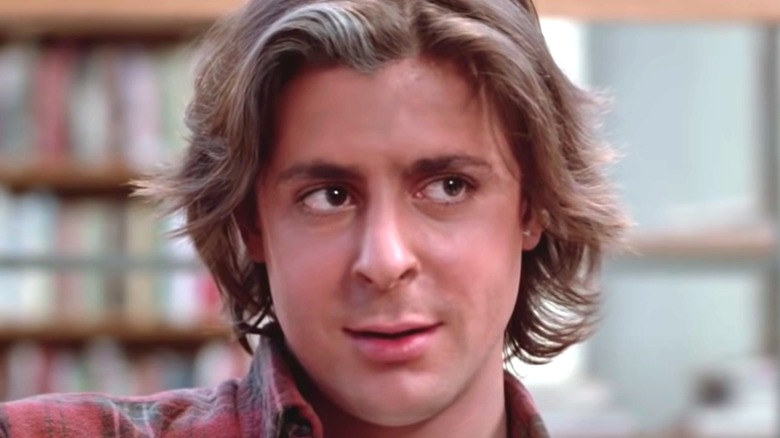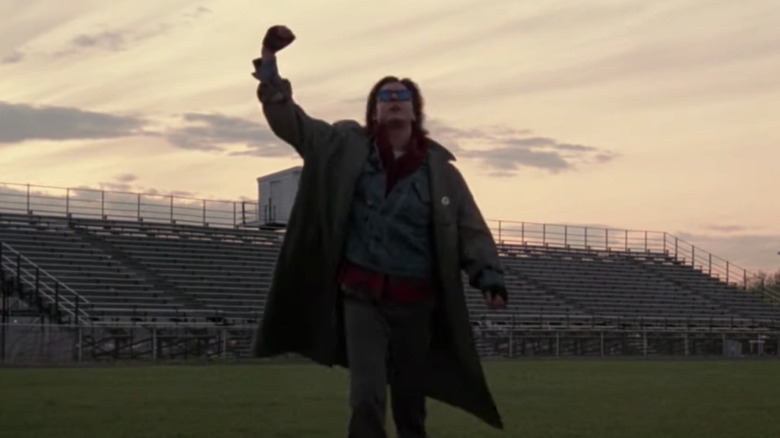This Iconic Scene From The Breakfast Club Was Improvised
We all know the types: a brain, a beauty, a jock, a rebel, and a recluse. Director and writer John Hughes, however, knew them best. Hughes' 1985 Illinois-centered cult hit "The Breakfast Club" dawned an up-and-coming cast, which included Molly Ringwald (Claire Standish), Judd Nelson (John Bender), Emilio Estevez (Andrew Clark), Ally Sheedy (Allison Reynolds), and Anthony Michael Hall (Brian Johnson). These emblematic breakout roles in Hughes' film cemented the actors forever in our minds and hearts as the members of "The Breakfast Club."
Hughes was quite open to creative inputs and suggestions from the cast about the script and its characters. In an interview with Huffington Post, the film's cinematographer, Thomas Del Ruth, said (about Hughes), "He wanted them to feel free and that gave them a lot of latitude. If there was a line or two or even a paragraph that lent itself to the character or enhanced the story, John would simply rewrite on the spot." The freedom for collaborative interpretation that Hughes allowed the actors to have was an extreme gift, considering that one of the most famous scenes in movie history was the result of improvisation.
Hughes was a proponent of on-set improvisation
During the filming of "The Breakfast Club," many scenes were improvised and some of the dialogue was ad-libbed (via Collider). Per Insider, one of the most well-known ad-libbed scenes was when the characters reveal why they're all in detention. The line that Allison says during the iconic scene, "When you grow up, your heart dies" was apparently an unplanned decision, and ends up being another indelible example of the free-spirited improvisation that unfolded during the shooting of the film.
You know that final scene, the one where Bender puts his fist up into the air as he walks across a football field with the quintessential Simple Minds' track "Don't You Forget About Me" blaring offscreen? Well, originally, Hughes wanted Judd Nelson to walk across the field while the sunset showed brilliant behind him, with the note for Nelson to experiment with doing some random actions. Without Hughes' direction, Nelson thrusted his fist into the air, and everybody, including Hughes, marveled at this stunningly natural improvised and fitting character choice. The ending has since become a beloved and unforgettable piece of moviemaking that is often referenced in pop culture, films, and television shows. It truly gives us chills every single time.

